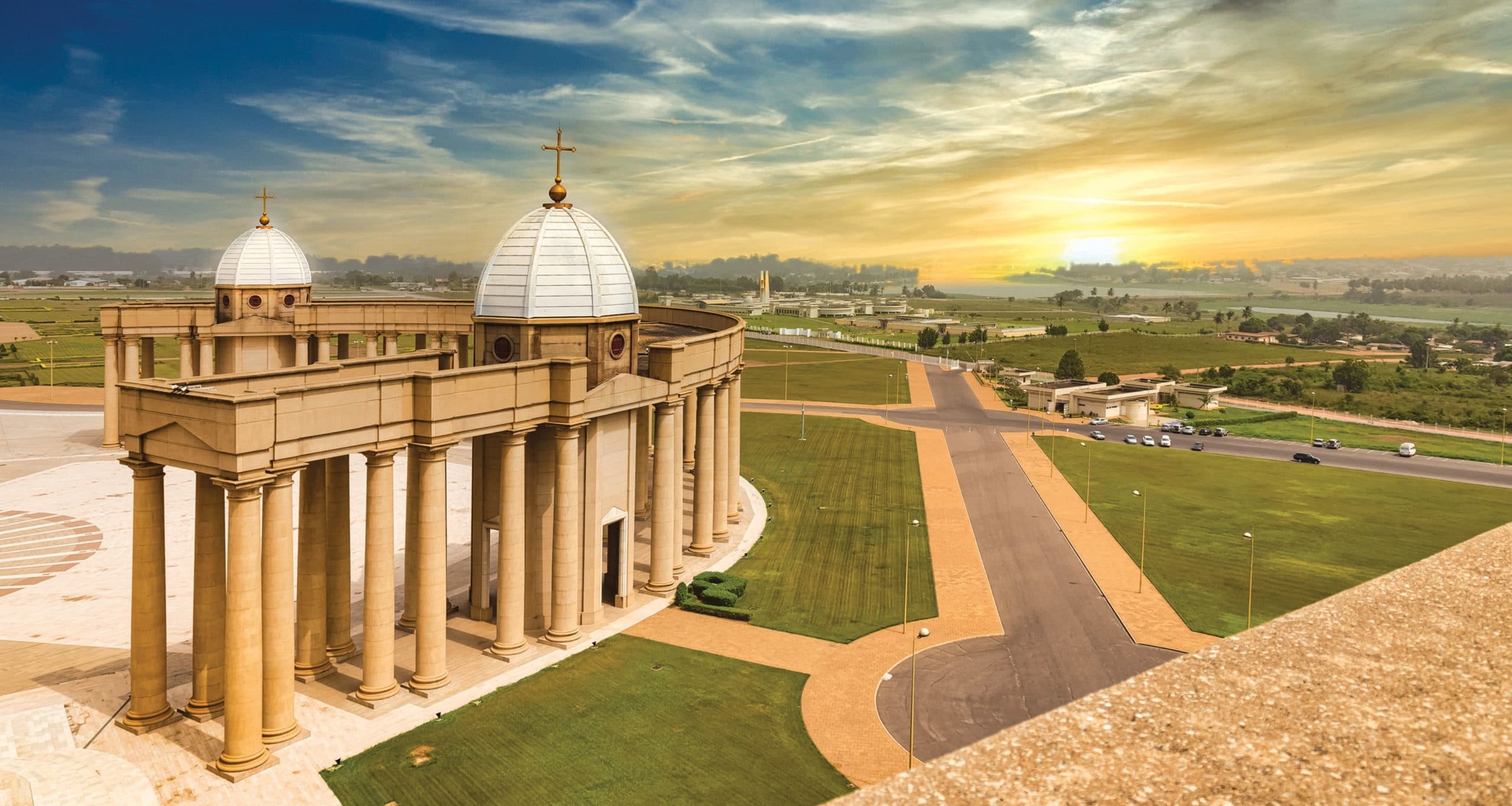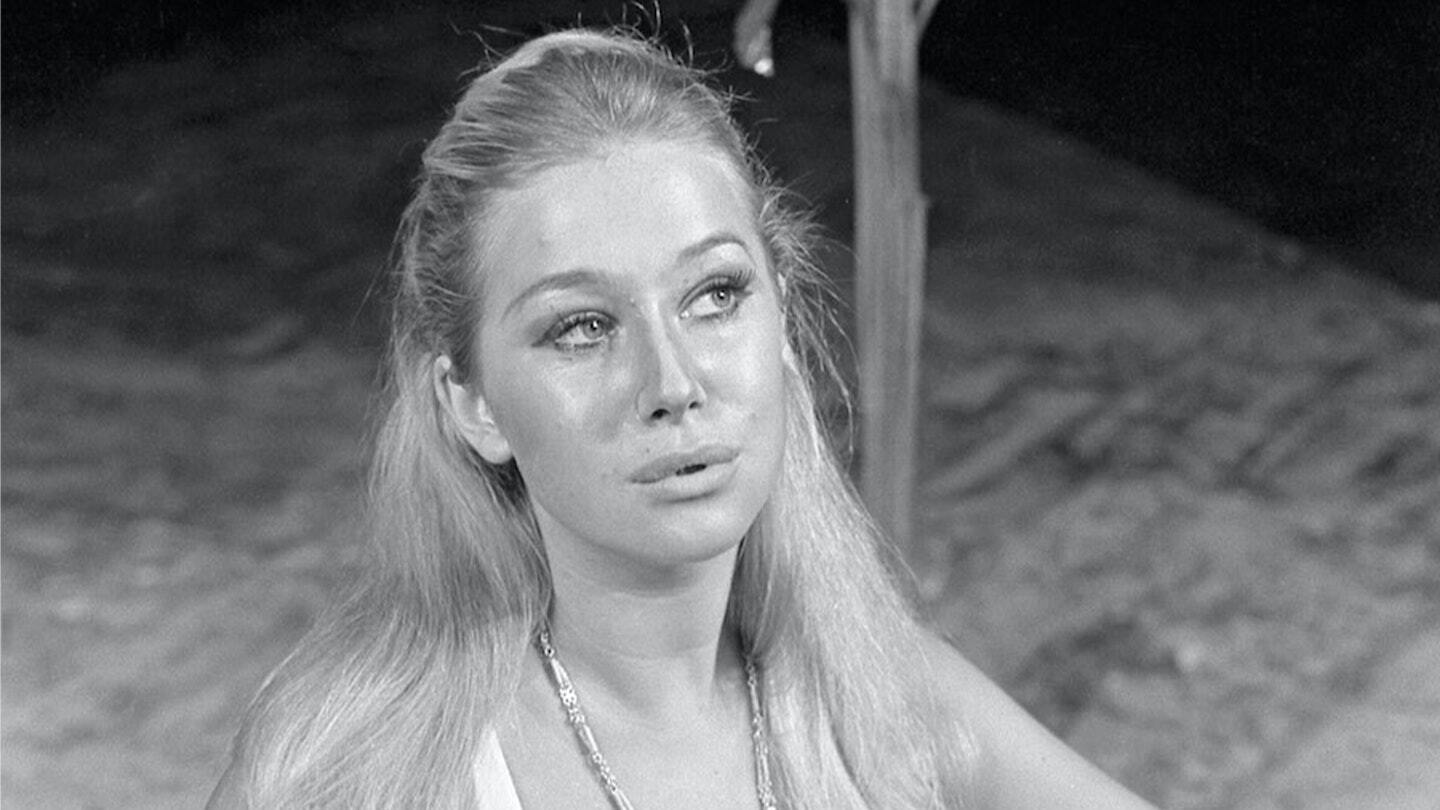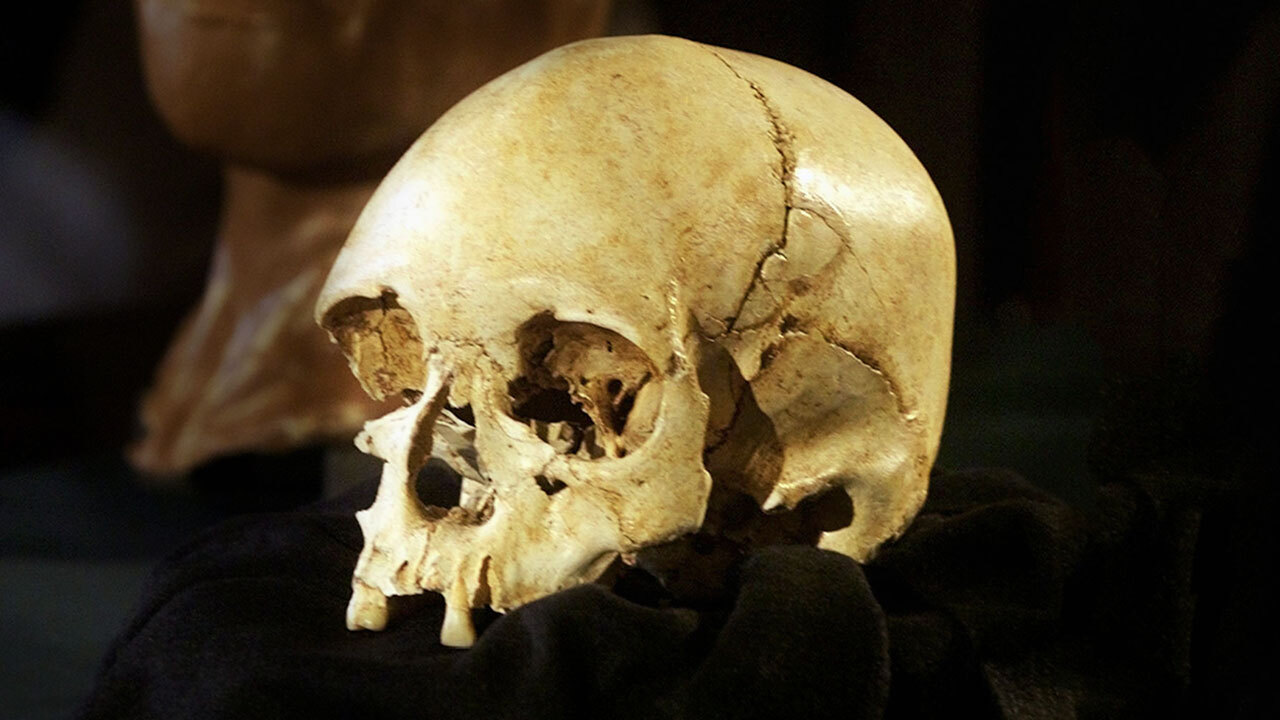
Côte d’Ivoire, also known as Ivory Coast, is a vibrant country situated in West Africa. With a diverse culture, rich history, and breathtaking landscapes, it is a fascinating destination that captivates travelers from around the world. From its stunning beaches along the Gulf of Guinea to its vibrant markets and bustling cities, Côte d’Ivoire offers a unique blend of natural beauty and cultural heritage.
In this article, we will delve into 46 fascinating facts about Côte d’Ivoire, uncovering its traditions, cuisine, wildlife, famous landmarks, and much more. Whether you are planning a visit to this enchanting country or simply want to learn more about it, these facts will provide you with a comprehensive insight into the beauty and diversity of Côte d’Ivoire.
Key Takeaways:
- Côte d’Ivoire is a diverse and vibrant country in West Africa, known for its rich culture, delicious cuisine, and stunning natural beauty. From colorful festivals to endangered wildlife, it offers an unforgettable experience for visitors.
- Despite its challenges, Côte d’Ivoire is resilient and determined to build a better future. With a strong sense of national pride and a growing economy, the country continues to make strides in various industries and work towards sustainable development.
Côte d’Ivoire, also known as Ivory Coast, is a country located in West Africa.
Côte d’Ivoire is bordered by Liberia, Guinea, Mali, Burkina Faso, Ghana, and the Atlantic Ocean.
The capital city of Côte d’Ivoire is Yamoussoukro.
Yamoussoukro is known for its grand Basilica of Our Lady of Peace, which is one of the largest churches in the world.
The official language of Côte d’Ivoire is French.
French is the primary language used in government, education, and business, although there are over 60 local languages spoken across the country.
Côte d’Ivoire gained independence from France on August 7, 1960.
After years of French colonial rule, Côte d’Ivoire became a sovereign nation.
The country has a diverse ethnic makeup.
Côte d’Ivoire is home to more than 60 ethnic groups, with the Baoulé being the largest ethnic group, followed by the Bété, Senufo, and Malinke.
The economy of Côte d’Ivoire is largely based on agriculture.
Côte d’Ivoire is one of the world’s leading producers of cocoa beans, coffee, and palm oil.
The famous UNESCO-listed Taï National Park is located in Côte d’Ivoire.
Taï National Park is known for its rich biodiversity and is home to various endangered species, including pygmy hippos, chimpanzees, and African elephants.
The national dish of Côte d’Ivoire is attiéké with grilled fish or chicken.
Attiéké is a popular local dish made from cassava and is often served with grilled fish or chicken.
The country has a vibrant music and dance culture.
Côte d’Ivoire is known for its lively music genres such as coupé-décalé and zouglou, which have gained popularity throughout Africa.
The national football team of Côte d’Ivoire is commonly known as the Elephants.
The team has achieved success in international competitions, including winning the African Cup of Nations in 1992 and 2015.
Côte d’Ivoire is rich in natural resources.
The country has significant deposits of gold, diamonds, iron ore, and oil, which contribute to its economy.
Côte d’Ivoire is known for its vibrant traditional attire.
The traditional clothing of Côte d’Ivoire includes colorful fabrics and patterns that reflect the diverse cultural heritage of the country.
The Basilica of Our Lady of Peace in Yamoussoukro is one of the largest Christian places of worship in the world.
With its impressive architecture and size, the basilica attracts visitors from around the globe.
Côte d’Ivoire has a tropical climate.
The country experiences a rainy season from May to October and a dry season from November to April.
Côte d’Ivoire was once the leading producer of coffee in the world.
However, cocoa has now taken over as the country’s most significant export crop.
The national park of Comoe in Côte d’Ivoire is a UNESCO World Heritage site.
It is home to various wildlife species, including elephants, lions, and buffalos.
Côte d’Ivoire is considered one of the economic powerhouses in West Africa.
It has a diversified economy and has experienced significant economic growth in recent years.
Football is the most popular sport in Côte d’Ivoire.
Côte d’Ivoire has produced several well-known footballers who have achieved international fame.
The country has beautiful beaches along its coastline.
Tourists can enjoy sunbathing, swimming, and various water sports activities in Côte d’Ivoire.
Côte d’Ivoire is known for its vibrant and colorful festivals.
The country celebrates various cultural and traditional festivals, including the Fête du Dipri, Festival des Masques, and Fête de la Musique.
The political capital of Côte d’Ivoire is Abidjan.
Abidjan is the economic and commercial center of the country, known for its skyscrapers and lively nightlife.
The country has a rich cultural heritage.
Côte d’Ivoire preserves ancient traditions, rituals, and craftsmanship that can be seen in its art, music, and dance.
Côte d’Ivoire is a member of the Economic Community of West African States (ECOWAS).
ECOWAS promotes regional cooperation and development among West African countries.
The official currency of Côte d’Ivoire is the West African CFA franc.
The currency is used in several other West African countries as well.
Côte d’Ivoire has a strong coffee culture.
Locals enjoy sipping on fresh and aromatic coffee brewed from locally grown beans.
The country is known for its intricate wood carvings and handicrafts.
Artisans in Côte d’Ivoire create beautiful sculptures, masks, and jewelry using traditional techniques.
Côte d’Ivoire is home to the largest church building in West Africa.
The Basilica of Our Lady of Peace in Yamoussoukro stands as a testament to the country’s religious devotion.
Côte d’Ivoire celebrates its Independence Day on August 7th each year.
The day commemorates the country’s freedom from French colonial rule.
The country has a diverse wildlife population.
Côte d’Ivoire is home to elephants, leopards, chimpanzees, crocodiles, and a wide variety of bird species.
The education system in Côte d’Ivoire is based on the French model.
French is the primary language of instruction in schools and universities across the country.
Côte d’Ivoire has a rich oral tradition.
Storytelling plays a vital role in preserving and passing down cultural heritage from one generation to the next.
The country has a significant Muslim population.
Islam is practiced by a large portion of the population, alongside Christianity and traditional African religions.
Côte d’Ivoire is known for its vibrant street markets.
Visitors can explore colorful markets selling a variety of goods, including traditional crafts, textiles, and fresh produce.
The country has a growing film industry.
Côte d’Ivoire produces several films each year, showcasing local talent and stories.
The national symbol of Côte d’Ivoire is the elephant.
Elephants are considered sacred and are often depicted in traditional art and cultural ceremonies.
Côte d’Ivoire has a diverse and flavorful cuisine.
Local dishes include attiéké, alloco (fried plantains), kedjenou (slow-cooked chicken or fish), and fish braised with tomatoes and spices.
The country has a well-developed transportation network.
Visitors can travel within Côte d’Ivoire using a combination of buses, taxis, and domestic flights.
Côte d’Ivoire has a significant youth population.
The country’s young demographic plays a vital role in shaping its future.
Traditional masks are an essential part of Côte d’Ivoire’s cultural heritage.
The masks are used in ceremonies, rituals, and performances to connect with ancestral spirits.
Côte d’Ivoire is known for its vibrant nightlife.
Major cities like Abidjan boast a thriving entertainment scene with clubs, bars, and live music venues.
The country has a strong sense of national pride.
Côte d’Ivoire’s people take pride in their cultural heritage, economic progress, and unity as a nation.
Côte d’Ivoire has hosted several international sporting events.
The country has welcomed tournaments such as the Africa Cup of Nations and the Francophonie Games.
The culture of Côte d’Ivoire values hospitality.
Visitors can expect warm and friendly welcomes from the local population.
Côte d’Ivoire is known for its vibrant fashion industry.
The country’s designers create unique and stylish garments that blend traditional and contemporary influences.
Côte d’Ivoire has made significant progress in reducing poverty.
Efforts have been made to improve living conditions and promote sustainable development.
Despite challenges, Côte d’Ivoire remains resilient and continues to strive for progress and prosperity.
The people of Côte d’Ivoire are determined to build a better future for their country.
These 46 facts about Côte d’Ivoire offer a glimpse into the rich culture, natural beauty, and fascinating history of this West African nation. From its diverse ethnic makeup to its vibrant music and dance culture, Côte d’Ivoire has much to offer visitors and residents alike. Whether exploring the bustling streets of Abidjan, savoring the flavors of traditional Ivorian cuisine, or encountering endangered wildlife in its national parks, Côte d’Ivoire is a country that captivates with its charm and warmth.
As Côte d’Ivoire continues to make strides in various industries and works towards sustainable development, the future looks promising for this vibrant nation. Whether it’s immersing yourself in the rich traditions or exploring the natural wonders, Côte d’Ivoire offers a unique and unforgettable experience for all who visit.
Conclusion
In conclusion, Côte d’Ivoire is a country rich in culture, history, and natural beauty. From its vibrant cities to its stunning landscapes, there is so much to discover and appreciate in this West African nation. With its diverse ethnic groups, delicious cuisine, and fascinating traditions, Côte d’Ivoire offers a truly immersive experience for visitors.Whether you’re exploring the bustling streets of Abidjan, marveling at the breathtaking beaches along the coastline, or delving into the country’s past at historical sites like the Grand Bassam, Côte d’Ivoire never fails to captivate. With a growing economy and a commitment to sustainable development, Côte d’Ivoire is also becoming an attractive destination for international businesses and investors.So, if you’re looking for a destination that offers a perfect blend of cultural immersion, natural wonders, and business opportunities, look no further than Côte d’Ivoire. This beautiful country will undoubtedly leave a lasting impression on anyone fortunate enough to visit.
FAQs
1. What is the official language of Côte d’Ivoire?
The official language of Côte d’Ivoire is French, which is widely spoken and understood by a large portion of the population.
2. What is the currency used in Côte d’Ivoire?
The currency used in Côte d’Ivoire is the West African CFA franc (XOF).
3. Is it safe to visit Côte d’Ivoire?
While Côte d’Ivoire has made significant progress in terms of safety and security, it is always advisable to take precautions and stay informed about the current situation before planning your trip.
4. What are some popular tourist attractions in Côte d’Ivoire?
Some popular tourist attractions in Côte d’Ivoire include the Basilica of Our Lady of Peace, Tai National Park, Comoé National Park, and the historic town of Grand Bassam.
5. What is the best time to visit Côte d’Ivoire?
The best time to visit Côte d’Ivoire is during the dry season, which typically lasts from November to March. This period offers milder temperatures and less rainfall, making it ideal for outdoor activities and exploration.
6. Do I need a visa to enter Côte d’Ivoire?
Most visitors require a visa to enter Côte d’Ivoire. It is recommended to check the visa requirements and apply in advance before your trip.
7. What are some traditional dishes of Côte d’Ivoire?
Some traditional dishes of Côte d’Ivoire include attiéké (fermented cassava couscous), foutou (mashed plantains), and kedjenou (stewed meat or fish with vegetables).
8. Is there a reliable transportation system in Côte d’Ivoire?
Côte d’Ivoire has a fairly well-developed transportation system, with options including taxis, buses, and domestic flights. However, it is recommended to plan your routes and transportation in advance for a smoother travel experience.
Côte d'Ivoire's rich culture, stunning landscapes, and vibrant cities offer endless opportunities for exploration. Delve into the life and music of renowned Ivorian reggae artist Tiken Jah Fakoly, whose powerful lyrics have inspired generations. Experience the bustling energy of Abidjan, Côte d'Ivoire's economic hub, through captivating facts that showcase its unique character. Venture beyond the capital to uncover fascinating details about Bouake, a city steeped in history and cultural significance. Each destination holds a wealth of stories waiting to be discovered, inviting you to embark on an unforgettable journey through this enchanting West African nation.
Was this page helpful?
Our commitment to delivering trustworthy and engaging content is at the heart of what we do. Each fact on our site is contributed by real users like you, bringing a wealth of diverse insights and information. To ensure the highest standards of accuracy and reliability, our dedicated editors meticulously review each submission. This process guarantees that the facts we share are not only fascinating but also credible. Trust in our commitment to quality and authenticity as you explore and learn with us.


